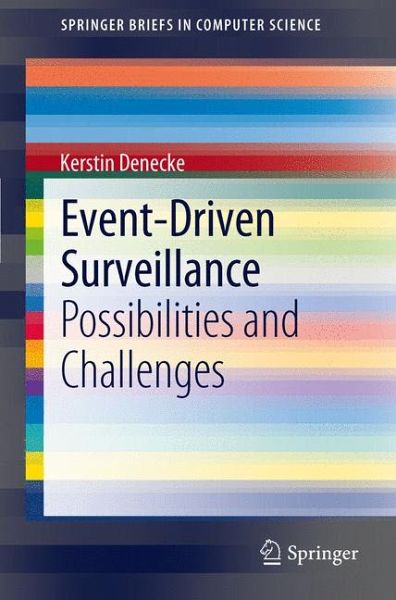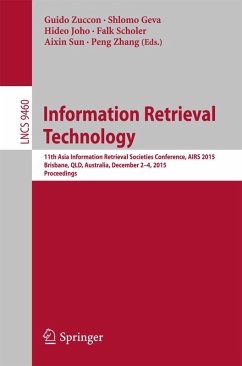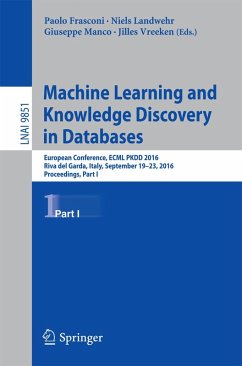
Event-Driven Surveillance (eBook, PDF)
Possibilities and Challenges
Versandkostenfrei!
Sofort per Download lieferbar
40,95 €
inkl. MwSt.
Weitere Ausgaben:

PAYBACK Punkte
20 °P sammeln!
The Web has become a rich source of personal information in the last few years. People twitter, blog, and chat online. Current feelings, experiences or latest news are posted. For instance, first hints to disease outbreaks, customer preferences, or political changes could be identified with this data.Surveillance or early warning systems enable such detection of changes and support humans in getting information on changing situations. However, the variety of data that could be considered for surveillance is immense, ranging from sensor-measured values to collected counts and information extrac...
The Web has become a rich source of personal information in the last few years. People twitter, blog, and chat online. Current feelings, experiences or latest news are posted. For instance, first hints to disease outbreaks, customer preferences, or political changes could be identified with this data.
Surveillance or early warning systems enable such detection of changes and support humans in getting information on changing situations. However, the variety of data that could be considered for surveillance is immense, ranging from sensor-measured values to collected counts and information extracted from natural language documents.
Denecke's objective is to introduce the multiple possibilities and facets of surveillance and its applications. She first introduces the task of surveillance and provides an overview on surveillance in various domains. Next, the various information sources that are available and could already be used by surveillance systems are summarized. In the main part of the book, her focus is on unstructured data as a source for surveillance. An overview on existing methods as well as methods to be developed in order to process this kind of data with respect to surveillance is presented. As an example application, she introduces disease surveillance using Web 2.0, including corresponding methods and challenges to be addressed. The book closes with remarks on new possibilities for surveillance gained by recent developments of the Internet and mobile communication, and with an outline of future challenges.
Surveillance or early warning systems enable such detection of changes and support humans in getting information on changing situations. However, the variety of data that could be considered for surveillance is immense, ranging from sensor-measured values to collected counts and information extracted from natural language documents.
Denecke's objective is to introduce the multiple possibilities and facets of surveillance and its applications. She first introduces the task of surveillance and provides an overview on surveillance in various domains. Next, the various information sources that are available and could already be used by surveillance systems are summarized. In the main part of the book, her focus is on unstructured data as a source for surveillance. An overview on existing methods as well as methods to be developed in order to process this kind of data with respect to surveillance is presented. As an example application, she introduces disease surveillance using Web 2.0, including corresponding methods and challenges to be addressed. The book closes with remarks on new possibilities for surveillance gained by recent developments of the Internet and mobile communication, and with an outline of future challenges.
Dieser Download kann aus rechtlichen Gründen nur mit Rechnungsadresse in A, B, BG, CY, CZ, D, DK, EW, E, FIN, F, GR, HR, H, IRL, I, LT, L, LR, M, NL, PL, P, R, S, SLO, SK ausgeliefert werden.













